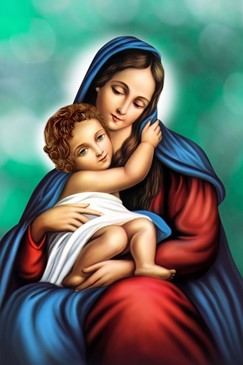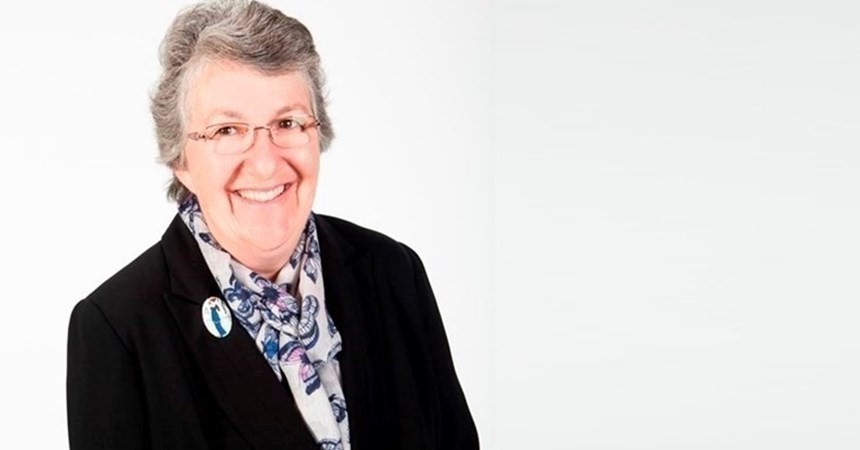 In the gospel reading from Luke (1:26-38) on this fourth week of Advent, we are reminded once again of the angel’s appearance to Mary and her willingness to accept God’s will; “let what you have said be done to me.”
In the gospel reading from Luke (1:26-38) on this fourth week of Advent, we are reminded once again of the angel’s appearance to Mary and her willingness to accept God’s will; “let what you have said be done to me.”
On 9 December, I came across the following words in Richard Rohr’s Daily Meditations – A Lifetime Commitment. It spoke powerfully to me and said what I wanted to say, but more eloquently.
You may recall a question I asked in last week’s message – What does it mean to be a Christ-centred Church?
Here are Richard Rohr’s words:
My dear friend Ronald Rolheiser, O.M.I. reminds us that giving birth spiritually is a dynamic and creative process. To bring Christ into the world involves an ongoing commitment to growth, to discomfort, to love, and to surrender. It is not for the faint of heart, but it is God’s invitation to all of us.
Looking at how Mary gave birth to Christ, we see that it’s not something that’s done in an instant. Faith, like biology, also relies on a process that has a number of distinct, organic moments. What are these moments? What is the process by which we give birth to faith in the world?
First, like Mary, we need to get pregnant by the Holy Spirit. We need to let the word take such root in us that it begins to become part of our actual flesh.
Then, like any woman who’s pregnant, we have to lovingly gestate, nurture, and protect what is growing inside us until it’s sufficiently strong so that it can live on its own, outside us.
Eventually, of course, we must give birth. . . .
 Birth, however, is only the beginnings of motherhood. Mary gave birth to a baby, but she had to spend years nurturing, coaxing, and cajoling that infant into adulthood. The infant in the crib at Bethlehem is not yet the Christ who preaches, heals, and dies for us.
Birth, however, is only the beginnings of motherhood. Mary gave birth to a baby, but she had to spend years nurturing, coaxing, and cajoling that infant into adulthood. The infant in the crib at Bethlehem is not yet the Christ who preaches, heals, and dies for us.
Finally, motherhood has still one more phase. As her child grows, matures, and takes on a personality and destiny of its own, the mother, at a point, must ponder (as Mary did). She must let herself be painfully stretched in understanding, in not knowing, in carrying tension, in letting go. She must set free to be itself something that was once so fiercely hers. The pains of childbirth are often gentle compared to this second wrenching.
All of this is what Mary went through to give Christ to the world: Pregnancy by the Holy Spirit; gestation of that into a child inside of her; excruciating pain in birthing that to the outside; nurturing that new life into adulthood; and pondering, painfully letting go so that this new life can be its own, not hers. . . .
Our task too is to give birth to Christ. Mary is the paradigm for doing that. From her we get the pattern: Let the word of God take root and make you pregnant; gestate that by giving it the nourishing sustenance of your own life; submit to the pain that is demanded for it to be born to the outside; then spend years coaxing it from infancy to adulthood; and finally, during and after all of this, do some pondering, accept the pain of not understanding and of letting go.
Christmas isn’t automatic, it can’t be taken for granted. It began with Mary, but each of us is asked to make our own contribution to giving flesh to faith in the world.
As we move into 2021, I hope and pray we are able to give birth to Christ across the many Catholic communities which make up the Diocese of Maitland-Newcastle. I know many people are weary from a long labour of giving birth to a renewed way of being. All of us will be invited into a contemplative dialogue process during Lent, a process that will hopefully lead us to continue to listen to what the Spirit is saying.
Christmas reminds us
that a faith that does not put itself in crisis is a faith in crisis,
that a faith that does not grow is a faith that must grow,
that a faith that does not question us is a faith that we must question,
a faith that does not animate us is a faith that must be reanimated;
a faith that does not upset us is a faith that must be upset.
Pope Francis to Vatican Bureaucrats, December 2017

With every best wish for the way in which you celebrate with family and friends, the coming of the Light of Christ into our world. Allen and I will be on the Gold Coast with our family. It will be a time of reconnecting after what has been a very long year of separation.

